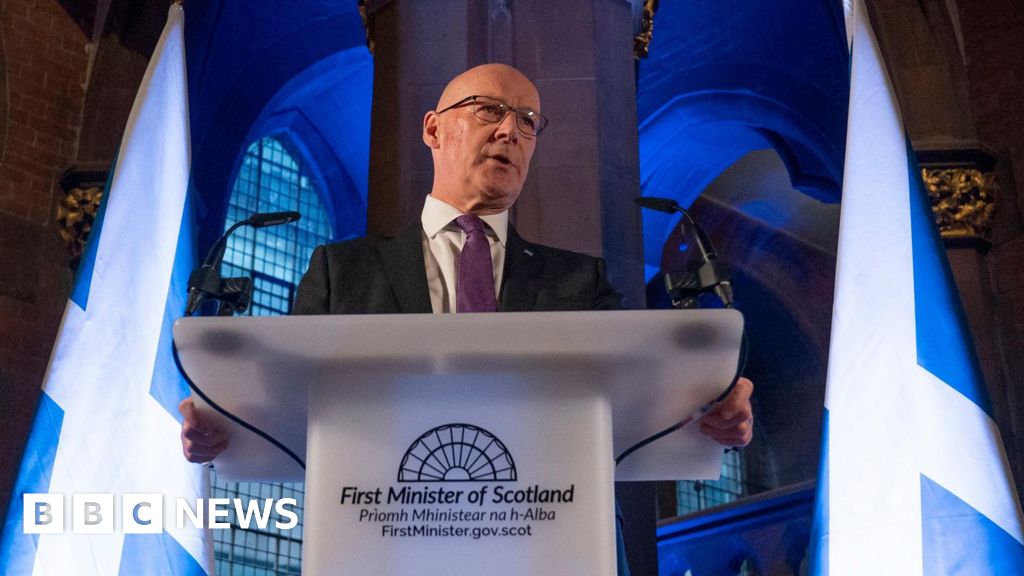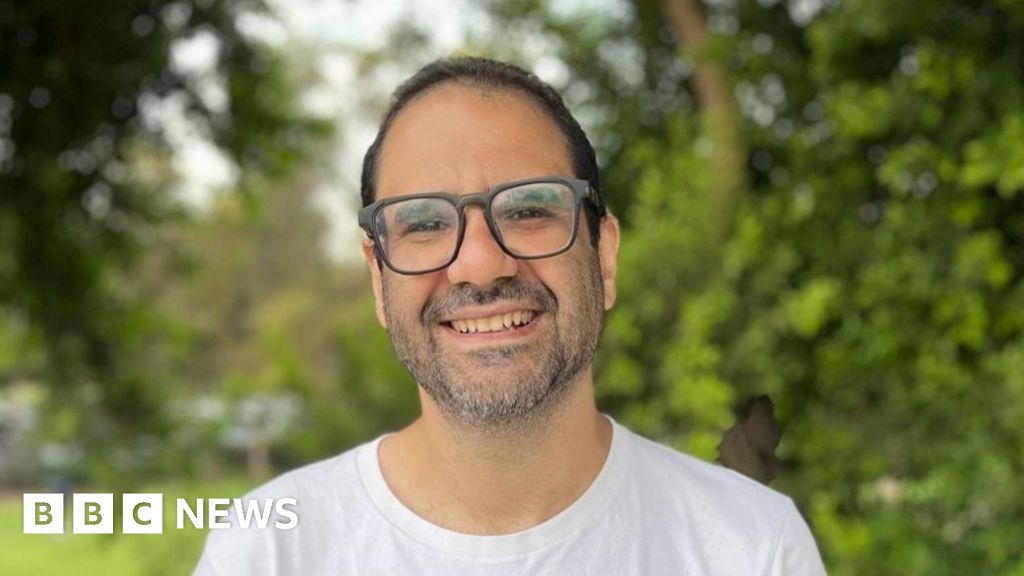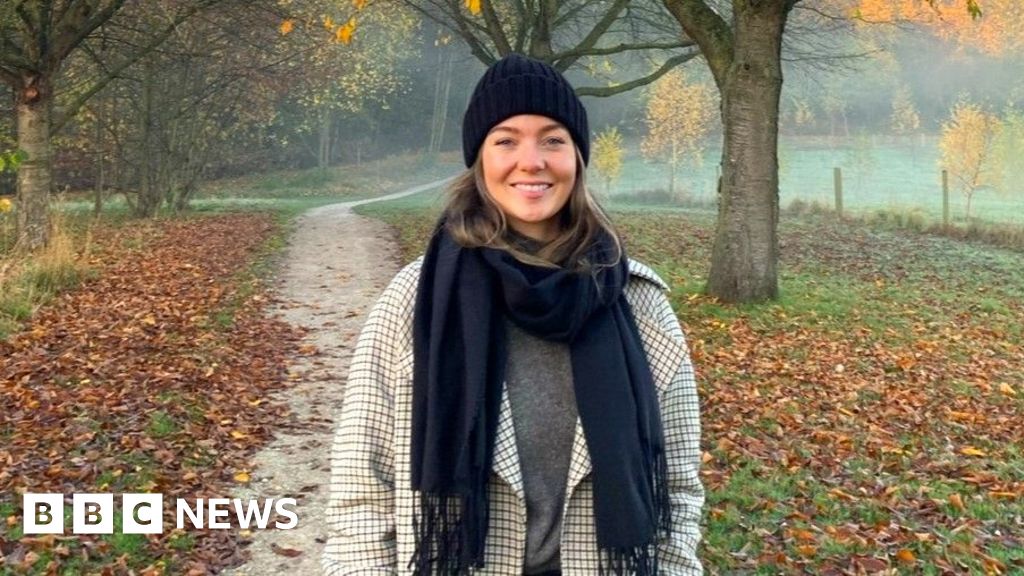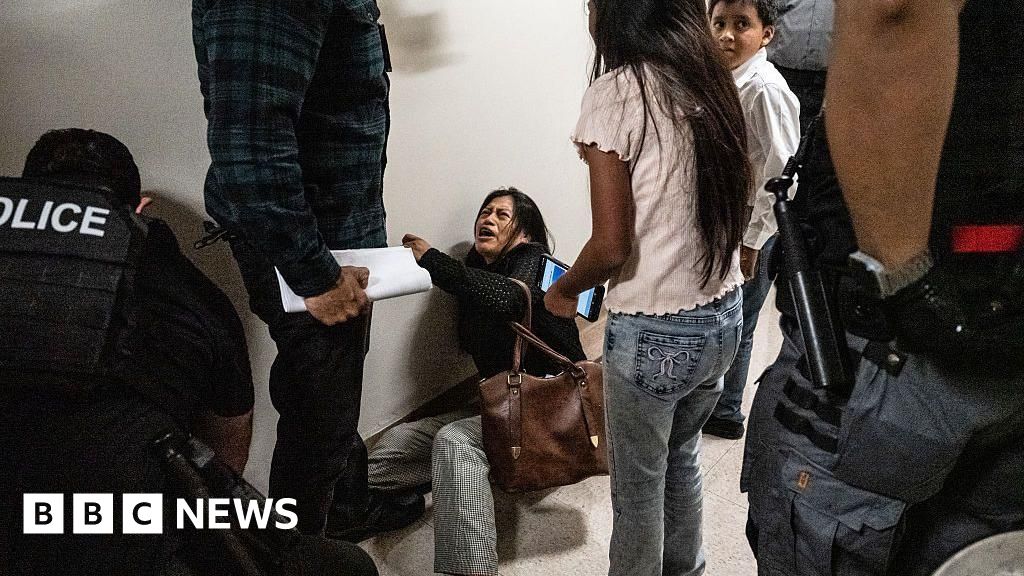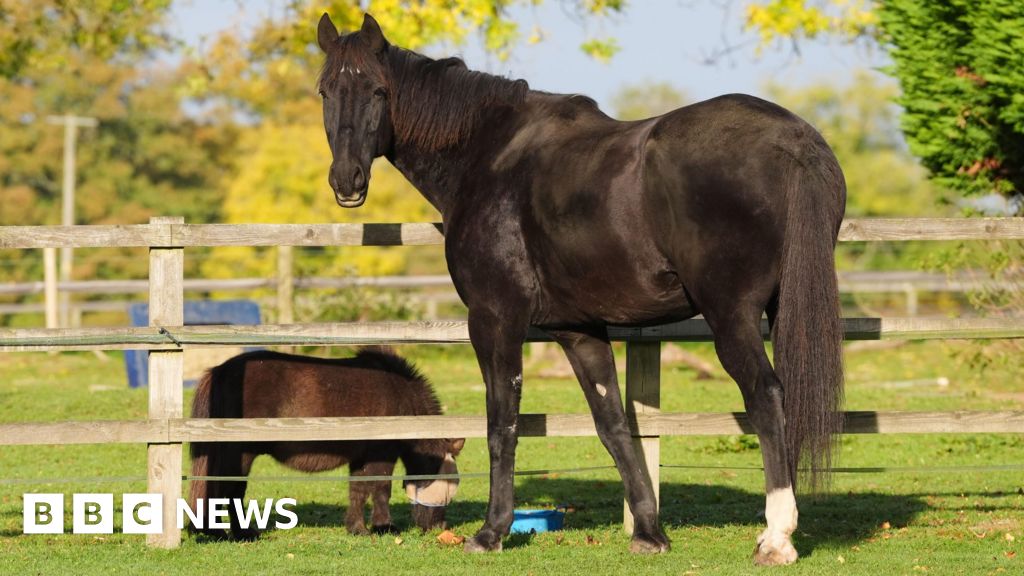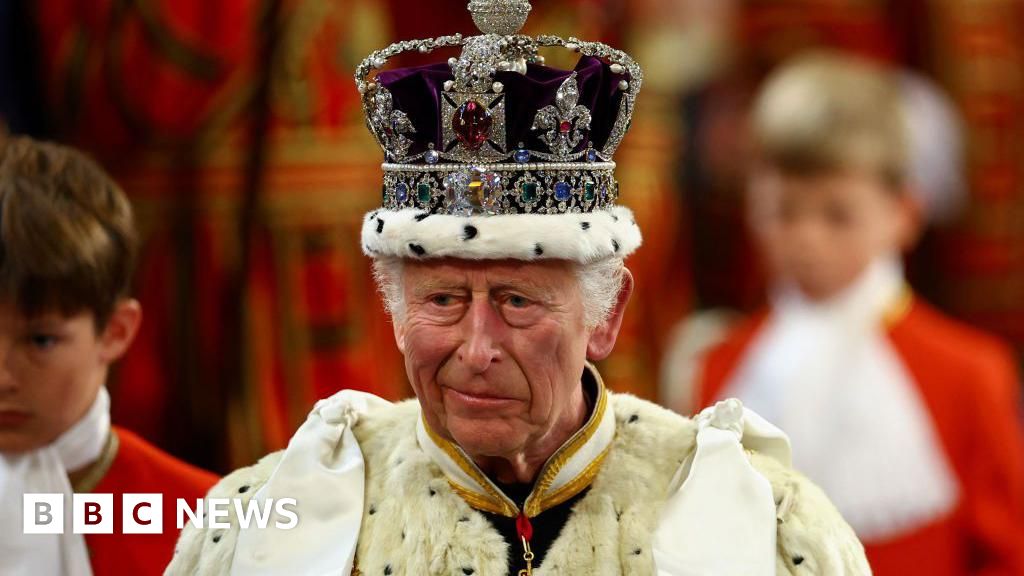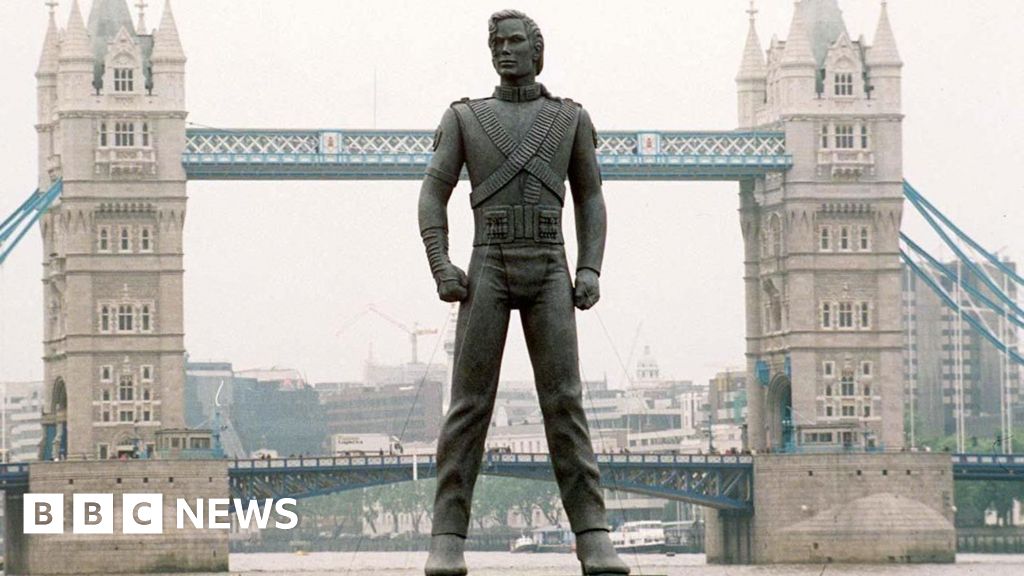David Deans
Political reporter, BBC Wales News

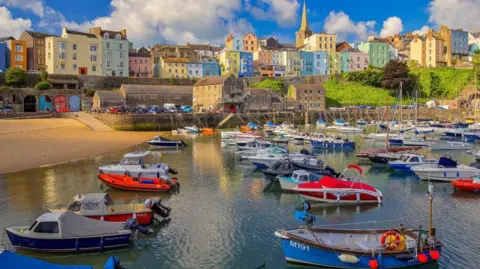 Getty Images
Getty Images
A new law allowing councils to tax visitors staying overnight in Wales is set to be passed by the Senedd later.
People staying in hotels could have £1.30 per night added to the cost of their stay if the plans go ahead.
Officials hope the tax will raise as much as £33m a year to support and improve tourist destinations, but businesses worry it might put visitors off.
The Welsh Conservatives vowed to scrap the tax if the party wins the 2026 Senedd election.
Plaid Cymru support for the legislation means the Welsh government has the numbers it needs to get the law through the Senedd.
Under the plans, those staying in hostels and campsites would pay 75p per person per night, while people staying in all other accommodation would pay the higher rate.
The charges are subject to VAT, while children under 18 will be exempt at hostels and campsites.
Plans for a tourism levy were promised in Labour's 2021 Senedd election manifesto, and in the party's now-defunct co-operation deal with Plaid Cymru.
They were drawn up following growing concerns about the impact of tourism in some Welsh communities.
It would be up to individual councils to decide whether to levy the charges, which would be introduced in 2027 at the earliest.
Local authorities could also decide after a year to increase the charges, in agreement with the Welsh government.
Cardiff council's Labour leader Huw Thomas has said he wants to introduce the policy in the capital.
He told Radio Wales Breakfast he thinks the city would raise around £3.5m-£4m a year.
Mr Thomas said the levy would allow the city to "recoup some of the costs" of holding events like the recent Oasis shows: "It allows us to market destinations like Cardiff and means we can go after similar events."
Anglesey has also backed the idea in principle, according to WalesOnline.
Some councils have said they have no plans to introduce the levy, including Vale of Glamorgan, Rhondda Cynon Taf, Newport, and Wrexham.
The latter council's leader Mark Pritchard said: "What everyone forgets is that millions of pounds flows into Wales... don't put obstacles in people's way."
Under the legislation, councils have to spend the cash on managing and improving tourist destinations.
This could be things such as toilets, promoting the Welsh language, footpaths, beaches and visitor centres, but what the cash ends up funding will ultimately be up to councils to decide.
The Welsh government has estimated that the levy could generate £33m a year if all councils took it up.
An impact assessment drawn up for the law said the number of visitors could fall as a result of the plans.
It suggests that, in the most optimistic case, the levy could lead to 100 new jobs overall, but in the worst could see 390 fewer jobs.
Estimates for how much it will benefit or hit the economy range from a boost of £10.8m, to a reduction of £7.3m, when public spending is taken into account.
Without adding on how much might be spent by the public sector as a result of the levy, estimates range from a £9.1m hit to the economy, to a £26.8m hit.

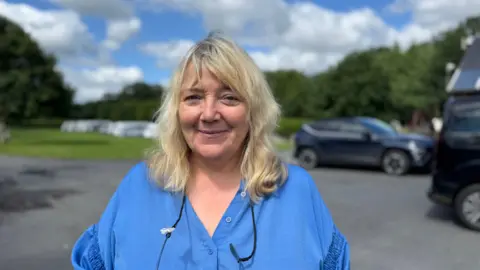
Bethan Evans says she supports the tax "in theory" but knows there will be some resistance from people
Bethan Evans, of family-run business Dolgamedd caravan park in Dolgellau, Gwynedd, said she welcomed the plans.
"In theory, I'm all for it. You can tell when the tourists come – roads are full, toilets are full, there's more rubbish. Somebody should pay for that, it just makes sense," she said.
"I'm hoping the Senedd will provide everybody with clear instructions. I think it'll be easier than it sounds."
Rachel Freeman, who was holidaying in north Wales from across the border in England, said she felt tourists already "contribute an awful lot to the country that we love and we visit" and the planned tax was "not entirely fair".
"I think we show enough respect and there's that reciprocal exchange by investing already by coming to the country and paying into the local economy and into local business," she said.

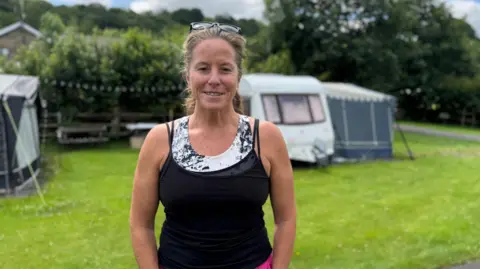
Rachel Freeman says the tax is "not entirely fair" on holidaymakers like her
Delma James, a tourist interviewed in Dolgellau, said she would be happy to pay, "no problem whatsoever".
"It pays for the services in the area, the toilets, other amenities."
She said she supported the taxation, even of Welsh people like herself on holiday in other areas of the country.
But Ian Williamson felt it was a "deterrent" to tourists and was "not welcome".
Sammi Rogers of Aran Hufen Ia ice cream shop, Bala, said she believed the tax could be detrimental to small businesses.
"I really feel like if someone is deciding between a holiday in Shropshire or the Lake District and Wales and it's going to be that little bit extra, it could push them to just go to a different area and not come to Wales."

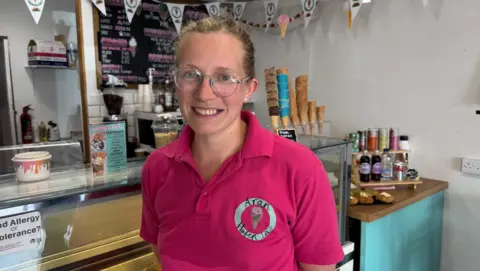
Sammi Rogers fears tourism tax could "push" people away from holidaying in Wales
Among those concerned with the plans have been the Welsh Tourism Alliance, which said the way the bill had been drafted meant councils did not need to focus on tourism when they decide how to spend the cash.
The Mid Wales Tourism group's Suzy Davies said the levy had "long ceased to be a tourism tax" because it would apply to "staying in visitor accommodation for any reason".
The Welsh Conservatives vowed to scrap the plans before they come into force, should they form a government after the next Senedd election.
Shadow finance cabinet secretary Sam Rowlands said the plans "will harm the economy to the tune of tens of millions of pounds and hundreds of jobs every single year".
Plaid Cymru's Luke Fletcher said the law would allow councils "to start the journey towards a sustainable tourism sector that works both for tourists and businesses alike".
Reform UK, which is hoping to win seats in the Senedd for the first time next May, said the tax would "hurt local businesses and cost rural jobs".
Accommodation providers will also be required to join a register under the law, which will be voted on by the Senedd on Tuesday afternoon.
Finance Secretary Mark Drakeford said: "We think it is fair visitors contribute towards local facilities, helping to fund infrastructure and services integral to their experience.
"Visitor levies are common around the world, benefiting local communities, tourists and businesses - and we want the same for Wales."

 3 months ago
63
3 months ago
63
